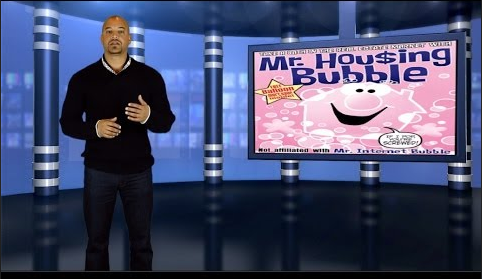Real Estate: the investment the common people know they want and deserve to get good and hard.
Millennials love real estate. Stocks, not so much, according to a new report. “According to data from RealtyShares, 55% of Millennials want to invest (or are already investing) in real estate. Furthermore, Fannie Mae reports that 85% of Millennials view real estate as a ‘good investment,’” writes Brian O’Connell for The Street.
Investments in stocks have dropped since the ‘08 crash. Meanwhile, "Real estate is something you can touch and feel, and stocks aren't," says Abhi Golhar, host of Real Estate Deal Talk, a daily radio program and once-weekly podcast.
"Most importantly, with real estate, you can get income, depreciation, equity, appreciation, and leverage. That's something stocks don't offer."Real estate investors can expect to make 15% on their investment by flipping houses, and can make up to 10% returns on home and apartment rentals, Golhar states.
Well there you go, real estate generates double-digit returns and the housing crash of ‘08 seems to be forgotten.
"Real estate can be favored because it's viewed as something tangible," says Brett Anderson, a financial planner with St. Croix Advisors, LLC, in Hudson, Wis. "Some people may feel a greater control holding real estate versus the stock market where they feel they don't have any control over the volatility and risk associated with the stock market."
Yes, real estate, they ain’t makin’ no more of it, plus Uncle Sam gives real estate favorable tax treatment and banks allow you to buy with plenty of leverage, in fact, you may not have to put any money down at all. What could go wrong with that?
"Overall, people are comfortable investing in real estate, they have a fairly good idea how it works, and it is tangible, you can touch it, look at it, and say 'This is mine,'" Mike Arman adds. "Securities are much more abstract, and people are nervous about what they don't know about."
As if people know how to fix plumbing and electrical wiring and whatnot. "If you view receiving phone calls about a leaking roof, overflowing toilets or having to find tenants as a cost of investing, real estate might be a good option for you."
Arman, a retired mortgage broker in City of Oak Hill, Fla. claims only the very rich invest in stocks. "Remember, the vast majority of stocks and bonds in this country are held by a quite small minority," he says. "80% of the stocks are held by 10% of the people. The top 1% owns as much stock as the top 90 to 99%, and those groups together own more stocks than the remaining 90% of the population. Obviously, that isn't the case with real estate."
Alexis Assadi notes, “property often has a special place in a people’s portfolios because they believe it’s a ‘tangible’ item. While that is not truer of real estate than it is of any investment (property is property, whether a house or shares in a company), it helps fuel the notion of inherent stability.
However, Noah Smith writes for Bloomberg,
Broadly speaking, rich people own the upside of the economy in the form of stock, while the middle class’s gains are limited by the slow growth of housing wealth. Wolff finds, unsurprisingly, that the collapse of the housing bubble exacerbated wealth inequality, because stocks recovered more strongly than real estate did.
But there’s one big reason why the rich still come out ahead -- instead of stocks, the middle class puts a large share of its wealth into residential real estate. Houses tend to earn lower returns than stocks.
Real estate is like democracy; as Mencken wrote, "Democracy is the theory that the common people know what they want and deserve to get it good and hard.”







